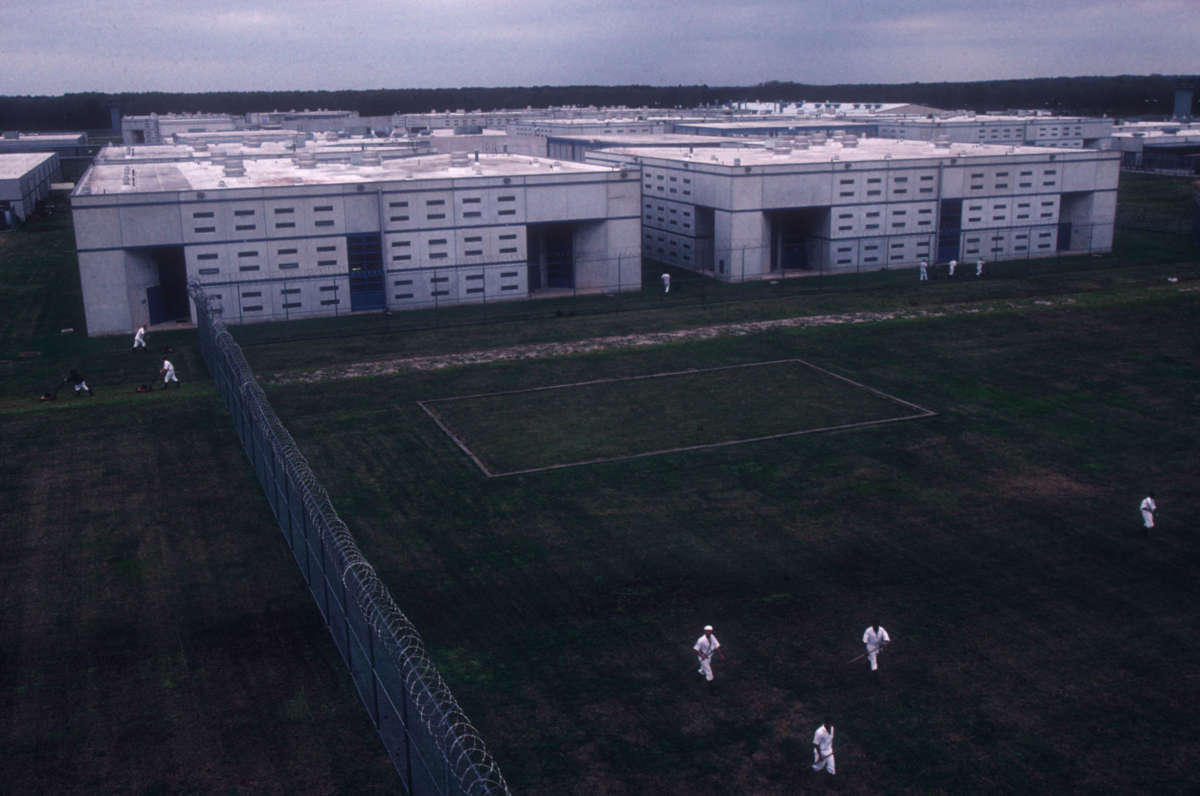Part of the Series
Despair and Disparity: The Uneven Burdens of COVID-19
Infrastructure development is a matter of life and death: This has always been true, and we are now in a clarifying moment.
In the midst of a mounting public health crisis in the United States, state, local and federal governments are struggling to address a lack of hospital capacity, manage the production of personal protective equipment, and even repurpose college campuses and convention centers to respond to the rapid spread of COVID-19. The nation’s smallest communities are meeting the outbreak clinging to a woefully inadequate or virtually nonexistent public health safety net. Rather than hospitals or health clinics, much of the rural U.S. is dotted with jails and prisons; places where vulnerable people live in inescapably close proximity, and the novel coronavirus can be a death sentence.
For decades, every level of government in the United States invested in the creation of a sprawling and decentralized infrastructure of premature death: jails, detention centers and prisons. Since the turn of the millennium, the number of people jailed and sent to prison from major cities has declined. But in the rural U.S., more and more poor and sick people have been locked up, and rural counties have continued to build bigger jails. Simultaneously, state and federal prisons have remained nearly the only employment on offer for many rural communities, though they’ve failed to produce the economic salvation that prison promoters promised.
But as carceral infrastructure was expanded over the past two decades, health infrastructure was systematically abandoned. Last year was the worst on record for rural hospitals: 19 closed and another 453 were deemed “vulnerable” by the Chartis Center for Rural Health. Rural hospitals serve older, sicker and poorer people than most of their urban counterparts, and the most fragile rural institutions serve a larger proportion of Black people, unemployed people and people who have not graduated from high school. In this time of acute need for life-saving and life-enhancing development, a scan of the landscape reveals that, instead, we are in the midst of an ongoing jail construction boom.
The callous and casual frequency with which counties across the country detain and incarcerate poor people is immoral. In the face of a quickly spreading virus, it will be increasingly fatal. The population that cycles in and out of our nation’s jails is sicker and more likely to have underlying conditions than the general population. Social distancing and careful use of hand sanitizer are impossibilities for those who live within arm’s reach of one another, often sleeping on mats or plastic “boats” on the floor in overcrowded jails.
For decades, the response to these conditions has been to build bigger jails, a public spending priority that cut off investment in other forms of life-saving care.
In some rural places, jails and prisons have quite literally supplanted health infrastructure. At Ray Brook, New York, for example, in advance of the 1980 Winter Olympics, the Federal Bureau of Prisons worked with local officials to convert a closed tuberculosis hospital into housing for visiting athletes. At the close of the games, it was immediately converted to Ray Brook Federal Prison.
One can read class-action complaints challenging the criminalization of poverty to see the politics of disposability that animate investments in county jails. Karen McNeil is the named plaintiff in a lawsuit challenging privatized probation in Giles County, Tennessee. She suffers from chronic obstructive pulmonary disorder, cancer and fibromyalgia, and spent years in a cycle of probation and incarceration after pleading guilty to driving on a suspended license, locked up after she violated her probation or was unable to pay supervision fees. According to the lawsuit filed by Civil Rights Corps, she was denied pain medication while incarcerated and ridiculed for being unable to complete a nurse request form.
Every level of government must release people from incarceration and detention immediately, and without dehumanizing — which is to say lethal — equivocation about who is relatively more or less deserving of life. State, local and federal governments will need to urgently prioritize public health across the urban to rural spectrum to stave off complete collapse.
The contradictions of our age are coming into sharp relief. The rapid spread of COVID-19 in New York City and New Orleans has arrived in rural communities, and both the people confined in jails and prison and the staff who work there will turn to health systems that are already on the brink of disaster. Mass incarceration and criminalization was and is a racist project, and Ruth Wilson Gilmore’s definition of racism appears particularly prescient in this moment. “Racism, specifically,” she writes, “is the state-sanctioned or extralegal production and exploitation of group-differentiated vulnerability to premature death.” Gilmore has also written about the era of mass incarceration as “the age of human sacrifice,” showing how prisons and jails are, by design, meant to waste resources and lives for the continued functioning of capitalism. Decades of investment in carceral infrastructure — and disinvestment in public health — have laid the track for the unfolding disaster.
If we are to emerge from this crisis with a functioning and fair society, public safety will need to mean safety for everyone. The time has come to definitively end mass incarceration and to build for a just future.
Press freedom is under attack
As Trump cracks down on political speech, independent media is increasingly necessary.
Truthout produces reporting you won’t see in the mainstream: journalism from the frontlines of global conflict, interviews with grassroots movement leaders, high-quality legal analysis and more.
Our work is possible thanks to reader support. Help Truthout catalyze change and social justice — make a tax-deductible monthly or one-time donation today.
